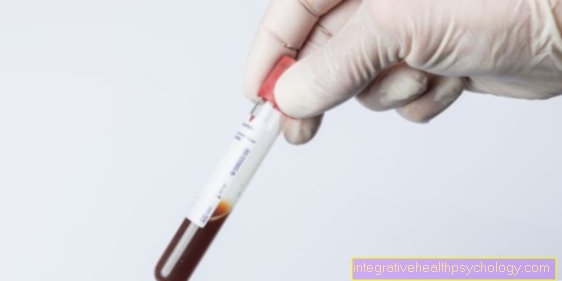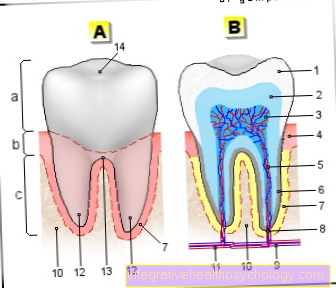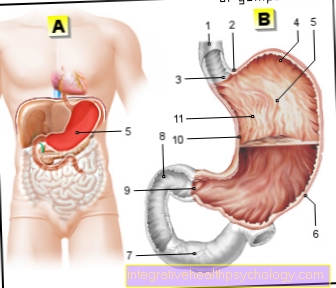The Alpha-1 Antitrypsin Test
What is the Alpha-1 Antitrypsin Test?
Alpha-1-antitrypsin is a protein complex that is used to digest other proteins in the intestine. Alpha-1 antitrypsin is also found in the blood, where it prevents the body's own cells from being digested.
Serious illness occurs when the alpha-1-antitrypsin level is too high or too low. Therefore, the alpha-1 antitrypsin test aims to provide a general determination of the amount of protein. Both the blood of affected persons and the amount of alpha-1 antitrypsin in the stool can be tested.

The indications for a test
Indications for an alpha-1 antitrypsin test are assumptions that the alpha-1 antitrypsin level is too high or too low.
The deficiency of alpha-1-antitrypsin results in a serious illness, which is mainly due to a defective formation in the liver. The result is damage to the lungs and liver. A deficiency in the protein should be considered, particularly in young people with combined liver and lung disease, so that an alpha-1-antitrypsin test is indicated.
The increase in protein is usually caused by general inflammation in the body. In this case, there are significantly less complex tests that can confirm the inflammatory reaction, which is why there is usually no indication for an alpha-1-antitrypsin test.
Find out all about the topic here: Alpha-1 antitrypsin deficiency.
The sequence
The alpha-1-antitrypsin test is usually carried out by your family doctor or pulmonologist (pulmonologist). The simplest method is to take a measurement from a small amount of blood. A few drops of blood are usually sufficient for this. Often, however, the determination is carried out as part of a larger laboratory test, so that some blood tubes are sent to a laboratory.The laboratory responsible then tests the blood for the amount of alpha-1 antitrypsin, among other things. If the value is below a certain limit, this can indicate a deficiency in the protein. If necessary, another alpha-1-antitrypsin test is carried out first to determine the level.
In most cases, additional genetic tests are also carried out, as the deficiency in alpha-1-antitrypsin is often genetic and can lead to serious illnesses.
Also read the article: The alpha-1 antitrypsin.
The evaluation
The alpha-1-antitrypsin test is usually evaluated in a laboratory, which receives the blood samples from the doctor's office or hospital where the blood was taken. Since every laboratory works with slightly different dilutions and measuring methods, the test result usually arrives together with a laboratory's own limit range. In this way it can be quickly identified whether the alpha-1-antitrypsin value is above, in or below the limit range.
The costs
If an alpha-1 antitrypsin test is carried out, this is usually done on the basis of a solid medical indication. Alpha-1 antitrypsin deficiency disorders are often inherited, so there is a family history. If another family member has complaints, a test can quickly be carried out here, the costs of which will be covered by the health insurance company.
Anyone who wants to test underage children may be forced to finance the test out of their own pocket. This depends on whether there are symptoms that can be traced back to an alpha-1 antritrypsin deficiency. Exactly how expensive the test is depends on the costs of the blood collection and the evaluation costs in the laboratory. A simple test is usually not particularly expensive. A detailed genetic examination, on the other hand, can be expensive.
Where can I take such a test?
A simple alpha-1-antitrypsin test in the blood can be arranged by the family doctor if there is sufficient suspicion of a deficiency or excess of alpha-1-antitrypsin. He takes the blood and then sends the blood samples to a laboratory. In addition, lung and liver specialists can also have the test carried out.
In contrast, extensive genetic testing usually has to be carried out in a human medical institute.







.jpg)




















.jpg)
.jpg)